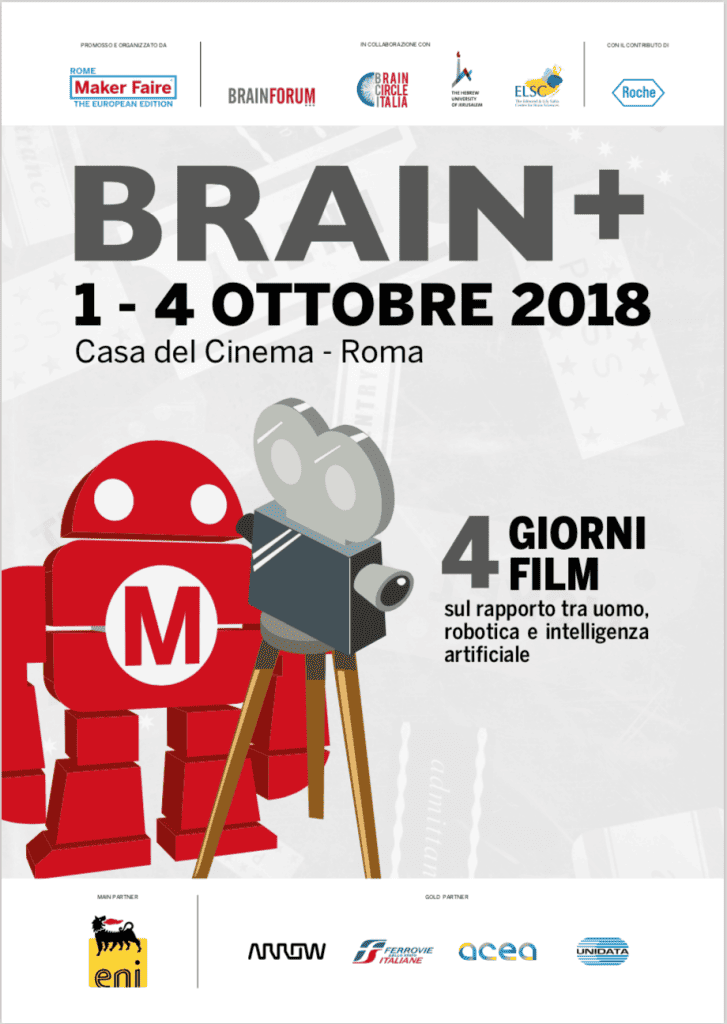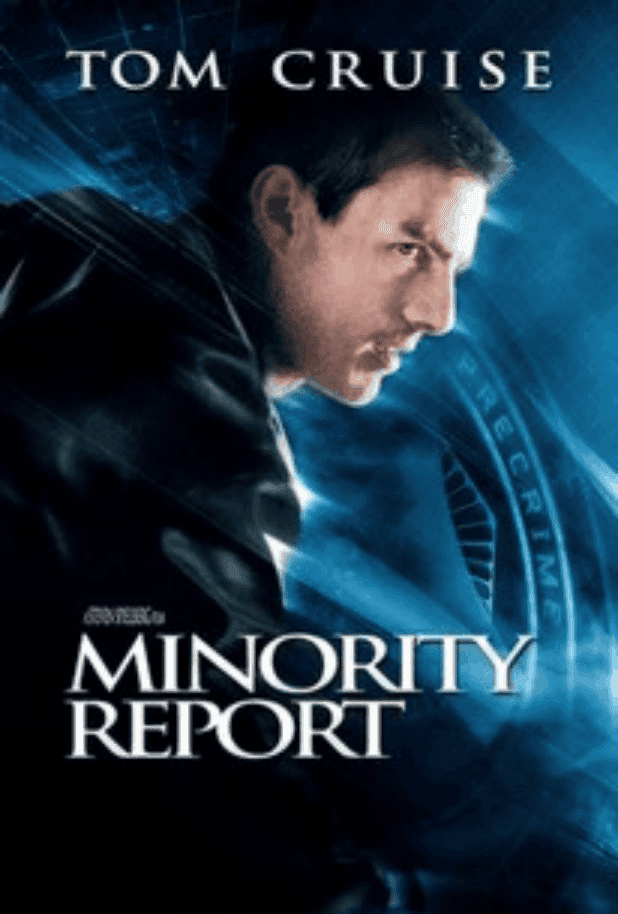
Waiting for Maker Faire 2018: Brain+ 4 days 4 films
A review of films on the relationship between man, robotics and artificial intelligence.
A BrainCircle Italia project for Maker Faire Rome – The European Edition
Casa del Cinema, Villa Borghese, Rome
from Monday 1st to Thursday 4th October 2018 at 8.30pm
free entry subject to availability
Why do we like films and involve us? What impact do they have on us? How do they affect the brain, and how is the brain affected by what it sees on the screen? Is it different to watch a movie at home or at the cinema? Why do we cry, laugh, feel terror, get emotional at the cinema, even though we know that what happens before our eyes is fictitious? And again, through the themes it deals with, can cinema help us understand the value and meaning of subjects such as artificial intelligence, technological innovation applied to criminology, robotics and their scientific and ethical impacts on our society?
The main objective of Brain+ is to try to bring an audience of non-experts and young people closer to scientific research, trying to get out of university classrooms, research centers and conference rooms and tackling topics that are now of great relevance and scientific interest with a language, that of cinema, certainly more captivating and understandable.
The films have been selected with an eye always attentive to their artistic quality and the scientific themes that characterize their plots, trying to offer the public, thanks to the experts and scientists who will analyze them, a curious, unusual and fun. Internationally renowned neuroscientists and experts will comment on visionary masterpieces on augmented reality and brain-machine interfaces, illustrating the state of the most advanced brain research. Each evening opened with an introductory debate on the topic, moderated by Viviana Kasam and followed by the screening of one of the films on the programme.
October 1: Can criminal behavior be predicted?

Screening of Minority Report, by Steven Spielberg (USA, 2002, 146′).
Speakers: Adrian Raine, Olivia Choy and Bruno Lepri (debate in English with simultaneous translation).
The most recent neuroscience studies demonstrate how the tendency towards violent behavior can be traced back to dysfunctions in the brain and is often identifiable already in early childhood. Two world-renowned experts in this sector.
October 2: Remote control your brain

Screening of The Manchurian Candidate, by Jonathan Demme (USA, 2004, 132′).
Fabio Babiloni and Fiorella Operto intervene.
Technology already today allows us to intervene on the brain through electrical and magnetic stimulation to treat some diseases, such as Parkinson’s and epilepsy, but also obsessive-compulsive behaviors, up to the possibility of reviving people in a vegetative state. And the possibility of enhancing cognitive abilities and memory through microchips implanted in the brain, but also of “reading” the thoughts of others is already foreseen. Are we on the threshold of a revolution that will radically change human beings? And what are the ethical challenges for this future that lies ahead?
October 3: Love in the time of robots

Screening of Ex machina, by Alex Garland (UK 2015, 108′).
Speakers include Barbara Bottalico and Federica Pascucci.
The theme of superintelligent robots, conscious and capable of manipulating and rebelling against man, has moved from science fiction to a predictable reality thanks to deep learning, the exponential growth of computing possibilities, the creation of increasingly sophisticated humanoid robots capable of “read” our emotions. And while cinema imagines love between humans and robots, scientists are developing machines capable of assisting us, conversing with us, keeping us company. With what consequences?
October 4: Augmented reality: the new frontiers

Screening of Artificial Intelligence, by Steven Spielberg (USA, 2001, 140′).
Marco Gori and Sébastien Bratières spoke.
The transition to an augmented humanity is one of the upcoming goals. There are those who say that in 2050 there will no longer be human beings as we are used to knowing them.









